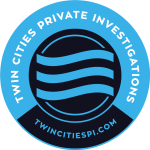Workplace investigations are crucial for maintaining a harmonious and productive work environment. When it comes to conducting formal inquiries, there are five essential tips that every organization should keep in mind. By following these guidelines, employers can ensure a fair and thorough process. In certain cases, the involvement of a private investigator is essential for conducting formal inquiries.
If you are facing a situation that necessitates an investigation, you are not alone, according to Forbes, employee misconduct has cost businesses 20 billion dollars a year. https://www.forbes.com/sites/edwardsegal/2021/12/16/workplace-misconduct-cost-us-businesses-20-billion-in-past-year-new-study/?sh=34278d4b6275
Read on to discover the key insights and best practices that will help you navigate the intricacies of workplace investigations effectively.
- Act Promptly and Fairly:
- Begin the investigation as soon as possible after receiving a complaint or becoming aware of a potential issue.
- Treat all parties involved with fairness and impartiality. Avoid any bias and ensure that each individual has an opportunity to present their side of the story.
- Maintain Confidentiality:
- Keep the investigation confidential to the extent possible. This helps protect the privacy of those involved and prevents unnecessary rumors or tension in the workplace.
- Share information only with those who need to know for the purpose of the investigation.
- Select an Impartial Investigator:
- Choose an investigator who is impartial and has the skills necessary for a thorough investigation. This might be someone from within the organization, such as an HR professional, or a private investigator.
- Ensure that the investigator has no personal or professional conflicts of interest with the parties involved.
- Follow a Structured Process:
- Establish a clear and documented process for the investigation. This should include gathering relevant evidence, interviewing witnesses, and documenting findings.
- Adhere to any relevant company policies, legal requirements, or industry standards throughout the investigation.
- Communicate Clearly:
- Communicate with all parties involved about the investigation process, timelines, and expectations.
- Keep affected employees informed about the progress of the investigation without compromising confidentiality.
- Once the investigation is complete, communicate the outcomes, including any corrective actions that will be taken.
In conclusion, workplace investigations necessitate the utmost sensitivity and commitment to ethical principles. By approaching these inquiries with care and conducting them diligently, organizations can ensure fair and just outcomes while maintaining trust among employees. Embracing these essential tips will not only foster a healthy work environment but also safeguard the reputation and success of the company.
Contact us at https://HanoverCG.com to learn more about implementing effective workplace investigation practices.


